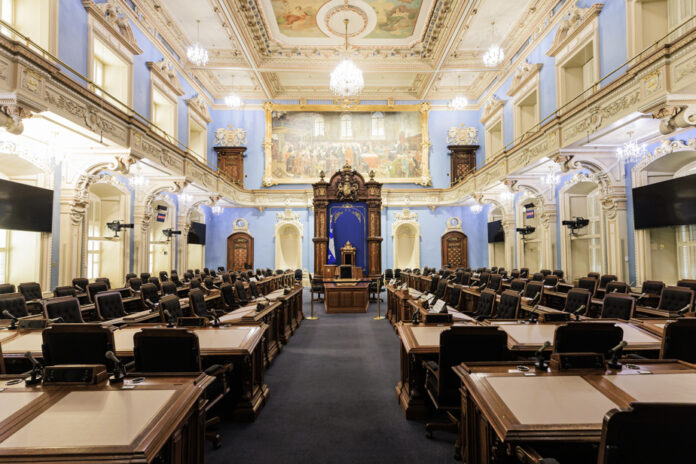(Quebec) Given their workload and atypical schedule, the hours they spend traveling between their riding and Quebec City, but also in an “increasingly worrying” security context, the committee responsible for reviewing the base salary for MPs proposes to increase it from $139,745 to $169,950 per year. This increase, the committee says, represents an “acceptable minimum.”
These sums include the basic annual indemnity and the expense allowance for elected officials. The committee’s report, formed at the request of the Office of the National Assembly and made up of former PQ member Martin Ouellet, former Liberal member Lise Thériault and a human resources specialist, Jérôme Côté, who the chair, was filed Wednesday at the Blue Room. Elected officials will have to vote for these recommendations if they want them to be implemented.
Remuneration has always been a delicate subject in the National Assembly. The last review of MPs’ salaries dates back to the early 2000s. Québec solidaire is already opposing the conclusions of the report tabled on Wednesday and is asking that an “independent and binding committee [obtain the] mandate to review all of the remuneration of deputies”. The Minister of Economy, Innovation and Energy, Pierre Fitzgibbon, for his part, affirms that elected officials should not decide themselves on their remuneration.
“The issue of the appearance of a conflict of interest remains an issue whenever the working conditions of MPs are discussed. Their conditions are fixed in a law and can therefore only be modified by the parliamentarians themselves”, recall the authors of the report.
“The creation of a standing committee with a mandate to periodically review the working conditions of parliamentarians could undoubtedly lessen this issue and allow parliamentarians to maintain a greater distance from this issue”, they add, thus taking up a recommendation formulated in 2013 by the Independent Advisory Committee on the Working Conditions and the Pension Plan of Members of the National Assembly chaired by retired Supreme Court of Canada Justice Claire L’Heureux-Dubé.
CAQ MP Marie-Louise Tardif said Wednesday that she was “paid enough”. Her eyes widened when told of the proposed 20% raise. ” Oh ! I will think about it ! It’s a lot ! »
In more detail, the basic annual allowance for an MLA is currently $101,561. Added to this is an expense allowance that brings his compensation to $139,745. In the current legislature, only 10 MPs out of 125 receive this basic salary, since they do not hold any other paid position (chairman of a committee, parliamentary assistant, etc.). By comparison, an elected member of the Legislative Assembly of Ontario is paid $116,500 to sit in Queen’s Park in Toronto.
“I invite citizens to follow the MPs from Ontario and to follow the MPs from Quebec. [They will] see a huge difference in the intensity of the work,” Ouellet said.
The two former elected officials, who worked on the committee with Jérôme Côté, a “professional in compensation and strategic human resources management”, are surprised that the basic annual allowance for elected officials ($101,561) less than a political aide or adviser, whose maximum compensation is $106,126.
“If you want to attract more talent, you have to make sure salaries are competitive,” Thériault said.
Raising base annual compensation from $139,745 to $169,950, the recommended increase is 21%. Lise Thériault and Martin Ouellet consider that it should also be applied retroactively from the 2023-2024 fiscal year, then indexed “equivalently to any revision and increase in the salary of class 4 of the category of first officers, vice-presidents and members of a government agency”.
In addition to their basic annual indemnity, the expense allowance and additional indemnities when they hold parliamentary office, the elected members of the National Assembly have access to a group insurance plan, a transition allowance in end of term and a pension plan.


















